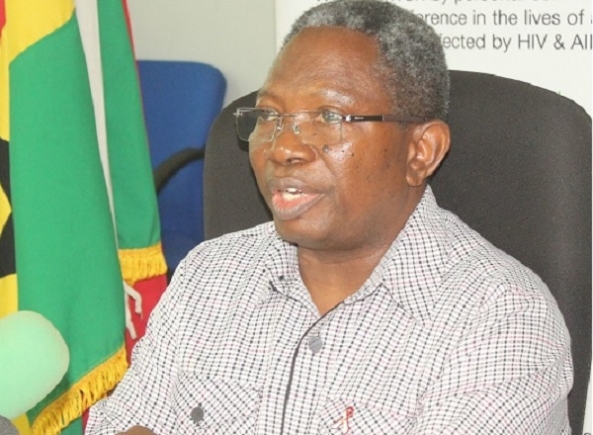
Inadequate funding: AIDS Commission rations anti-retroviral drugs
The Ghana AIDS Commission says financial constraints have led to the rationing of anti-retroviral (ART) drugs for persons living with HIV and AIDS.
ART reduces mortality and morbidity rates among HIV-infected people and improves their quality of life.
It also prevents HIV transmission by suppressing HIV replication in persons living with the virus
The Director-General of the Ghana AIDS Commission, Dr. Kyeremeh Atuahene, said the medicine is distributed to patients between two weeks to three months instead of the allocated six months.
He attributed the development to the lack of government support, adding that “there’s no specific budgetary allocation for HIV programmes”.
Speaking on Citi FM’s Eyewitness News monitored by Graphic Online on Wednesday, Dr Atuahene said the commission is confronted with challenges in meeting the demand for drugs, leading to the rationing.
“The global fund provides ART for 125,000 of the HIV population... so the government is supposed to provide for the remaining 225, 000 so that we can have full coverage, however, it doesn’t come frequently and so we often ration the medicines and we often run short of them", he explained.
Call for help
Dr Atuahene called on all stakeholders including individuals to come to the aid of the commission by donating to the AIDS fund to bridge the funding gap.
“We have a huge funding gap, the people living with HIV, their only existence depends on the ART, if we run short or we do not have the money to provide the medicine, it’s like people who are on oxygen or who don't have supply of oxygen or the oxygen is taking off them and the obvious end is death for them, the same thing is to the people living with HIV”
“Once in a while, we get something from National Health Insurance Scheme (NHIS). The funding gap is 66%. We need Ghanaians to support us by dialing USSD *989# to donate to support the AIDS fund”.
Stats
According to Dr. Atuahene 354, 927 people live with the disease in Ghana as of 2022.
He further explains that 115,235 males are with the disease while 239, 692 females in Ghana are living with the disease.
"Age disaggregation shows that children under 14 and below are 24,712 and 15 years and above is 330,215", he added.
He said there was a reduction in new cases in the year 2022 as compared to 2021.
He said the country recorded a total of 16,574 new cases of infections in 2022 as compared to 18036 cases the previous year.
